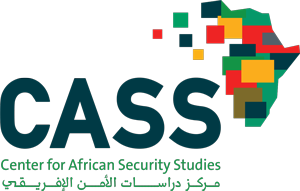Since 2015, Al-Qaeda has tried several times, through its affiliates in Mali, to expand westwards into Senegal. By 2016, Senegal was holding about 900 detainees suspected of collaborating with the jihadist group, a reflection of Al-Qaeda’s determination to penetrate the strategically located country on the West African coast.
In 2021, the Senegalese security services announced they had dismantled a cell of Al-Qaeda affiliate Jama’at Nusrat al-Islam wal-Muslimin (JNIM) near the border with Mali, indicating a desire on the part of that group, too, to establish at least a rear base in Senegal.
The Global Terrorism Index for 2023 indicated that jihadist operations in the Sahel region accounted for 43% of the global total, the highest share of any region in the world. Mali, which borders Senegal to the east, ranked fourth on the list of countries most affected by “terrorism”, while Burkina Faso was second (after Afghanistan).
Such organizations have no intention of remaining confined to the countries to the east of Senegal. They are ideologically committed to spreading their beliefs and recruiting more members. Furthermore, the factors that have fueled their rise across the Sahel—porous borders, widespread and growing corruption, weak rule of law, environmental degradation and economic crises—are all present in multiple forms in Senegal.
One indicator that the group seeks to establish itself in eastern Senegal is that its members now control the smuggling route across the Malian border. They also sell livestock, through which they collect zakat taxes and royalties on the Senegalese side of the border. They also have Senegalese fighters among their ranks, which suggests that that they have established local Senegalese cells.
JNIM members deployed in western Mali may take advantage of political instability in Senegal to establish a foothold in the east of the country. Since 2020, the group has been strengthening its presence in western Mali, and by 2023 it had quadrupled its operations in the western province of Kayes compared to its attacks in the same region in 2020. The provincial capital of the same name lies less than 300 kilometers from the eastern border of Senegal.
The expansion of JNIM—and possibly the Islamic State group—into Senegal would almost certainly prompt Russia to offer to boost security cooperation with Senegal, as it has done with several other countries in West Africa and the Sahel. Senegal could well be the next new arena for jihadist activity and Russian strategic maneuvering.




